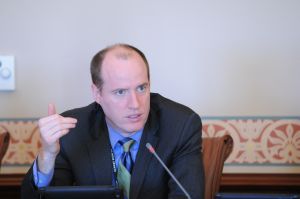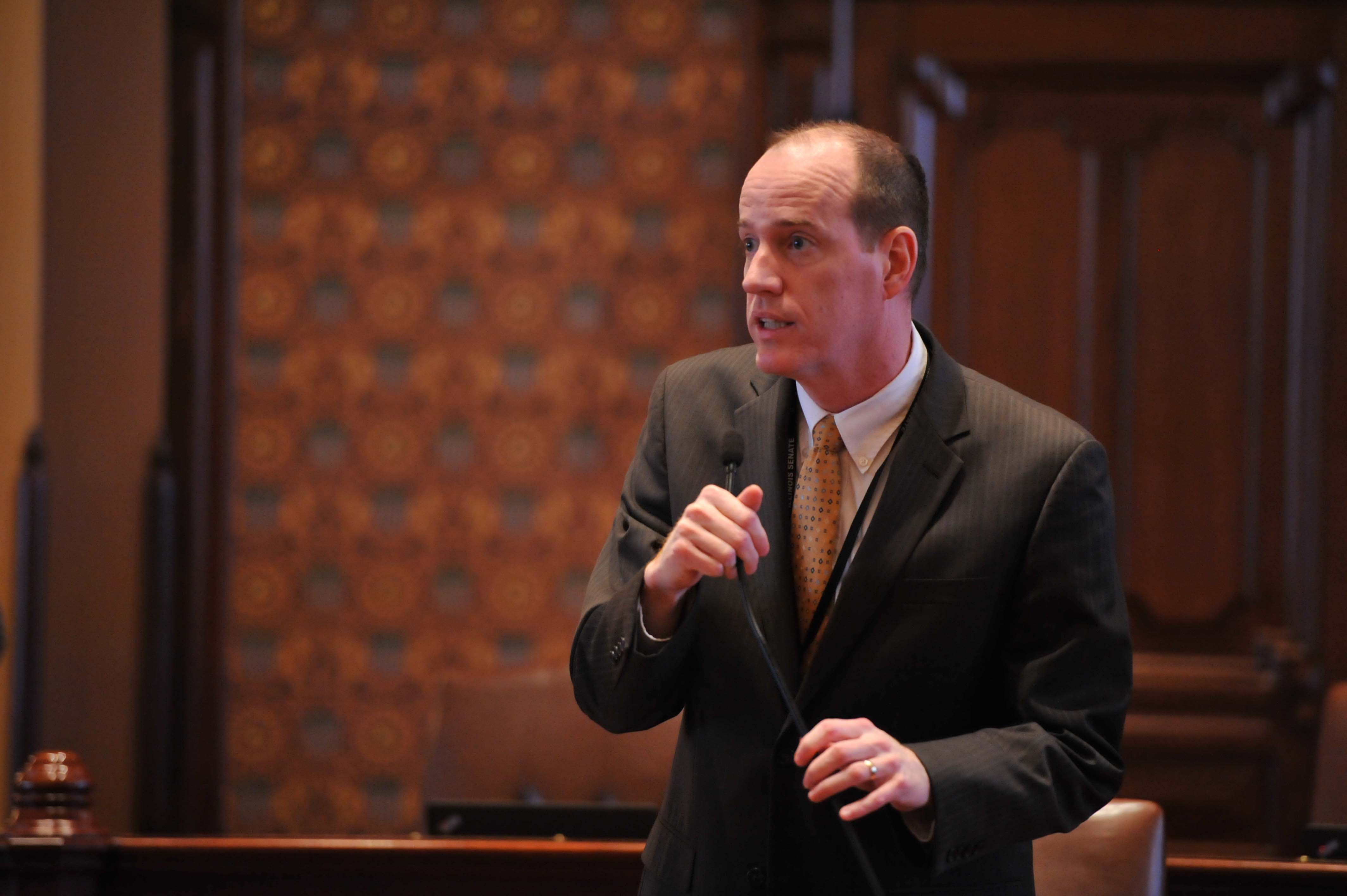- Details
- Category: Press Releases
 CHICAGO— Senator Cunningham recently sent a letter to an official at Palos Community Hospital urging the hospital to reconsider their current plans to close Palos Health and Fitness Center and attempt to protect the facility and the services it provides.
CHICAGO— Senator Cunningham recently sent a letter to an official at Palos Community Hospital urging the hospital to reconsider their current plans to close Palos Health and Fitness Center and attempt to protect the facility and the services it provides.
“This facility provides unique services that many in the community utilize to leading a healthy lifestyle,” said Senator Cunningham. “I respectfully ask that Palos Community Hospital reconsider their decision or find a way to continue to provide this excellent service to their community.”
- Details
- Category: Press Releases
 SPRINGFIELD—On Thursday, Senator Bill Cunningham joined his colleagues on passing a bill that would appropriate $397.1 million in MAP Grant funds for FY 2016. The legislation would also appropriate money for operations of community colleges.
SPRINGFIELD—On Thursday, Senator Bill Cunningham joined his colleagues on passing a bill that would appropriate $397.1 million in MAP Grant funds for FY 2016. The legislation would also appropriate money for operations of community colleges.
“We need to put MAP grant money where it belongs. We promised students that it would be there and it would only continue to damage our credibility if we tried to take it away. I urge the governor to quickly sign this legislation so our students can have the comfort of knowing we do support them,” Cunningham said.
- Details
- Category: Press Releases
 CHICAGO-- Senator Bill Cunningham had the following statement in response to the Republican backed proposal of a state takeover of Chicago Public Schools:
CHICAGO-- Senator Bill Cunningham had the following statement in response to the Republican backed proposal of a state takeover of Chicago Public Schools:
“A state takeover and forced bankruptcy won’t help our teachers. We need to be working with them to get them the resources they need. Not trying to undermine their work and economic stability.”
- Details
- Category: News
 CHICAGO — On Jan. 1, prospective student-teachers in Illinois will be required to go through the same background check process as a regular teacher. Senate Bill 706, passed during the last session of the 99th General Assembly, improved the process of how to properly screen student-teacher candidates.
CHICAGO — On Jan. 1, prospective student-teachers in Illinois will be required to go through the same background check process as a regular teacher. Senate Bill 706, passed during the last session of the 99th General Assembly, improved the process of how to properly screen student-teacher candidates.
The legislation is the result of a multi-year discussion between Senator Bill Cunningham (D-18), the Illinois State Board of Education and the Federal Bureau of Investigation.
More Articles …
Page 67 of 86



